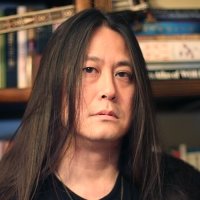Chinese Influence Operations in the U.S.: Shedding Some Light on All the Heat
In 2017, prior to the White House's declaration that China was a “horrible danger” to American interests, economic well-being, and values, U.S. China-watchers had become increasingly alarmed about Chinese political influence on American institutions and communities. Concern about the impact of Chinese Communist Party United Front work, investment, espionage, and market power on American higher education, film, technology, and other industries has grown since and has emerged as a new factor in bilateral relations. Despite the legitimate and serious issues raised under this banner, the “influence” issue is often poorly defined, exaggerated, and abused. In China itself, American worries about the corrosive stateside influence of the CCP are little-discussed.
Please join us for a critical examination of CCP influence — and the influence discourse — in the United States.
Moderator
Panelists


Hosted By

Kissinger Institute on China and the United States
The Kissinger Institute works to ensure that China policy serves American long-term interests and is founded in understanding of historical and cultural factors in bilateral relations and in accurate assessment of the aspirations of China’s government and people. Read more
